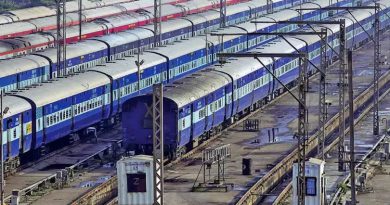Putin visits two regions in Ukraine as G7 condemn nuclear plan
(Reuters) – Russian President Vladimir Putin has visited security forces in parts of Ukraine that Russia says it annexed last year, as Group of Seven foreign ministers meeting in Japan condemned a Russian plan to station nuclear weapons in Belarus.
The Kremlin said Putin visited the Kherson and Luhansk regions, attending a military command meeting in the former and visiting a national guard headquarters in the latter.
The Kremlin did not say when he made the visits.
In Kherson, in the south, he heard reports from commanders of the airborne forces and the “Dnieper” army group as well as other senior officers who briefed him on the situation in the Kherson and Zaporizhzhia regions in the south.
Kherson, Zaporizhzhia and Luhansk, in the east, are three of the four regions that Putin proclaimed annexed last September. Ukraine and its Western allies rejected the annexations and Russian forces only partly hold the regions.
Russian troops retreated from the city of Kherson, the regional capital, last November, and have been reinforcing their positions on the opposite bank of the Dnipro river in anticipation of a Ukrainian counteroffensive.
While numerous Western leaders have made their way to Kyiv for talks with Ukrainian President Volodymyr Zelenskiy since Russian forces invaded 14 months ago, Putin has rarely visited parts of Ukraine under Russia’s control.
Last month, he visited the Crimea region and the city of Mariupol.
Russia says its “special military operation” in Ukraine, launched on Feb. 24 last year, was necessary to protect its security against what it sees as a hostile and aggressive West.
Ukraine and its Western allies say Russia is waging an unprovoked war aimed at grabbing territory.
A Russian winter offensive failed to make much progress and its troops have been bogged down in a series of battles in the east and south, where advances have been incremental and come at a huge cost to both sides.
A Ukrainian counter-offensive has long been expected after the months of attritional warfare.
‘Irresponsible’
Stepping up pressure on Kyiv and its Western supporters, Putin said last month said Russia would station shorter-range, so-called tactical nuclear weapons in close ally Belarus, which also borders Ukraine.
Russia says the deployment was forced upon it by the expansion of the NATO military alliance towards its borders.
It was the first time Russia had said it would station nuclear weapons on the territory of another country since the end of the Cold War three decades ago, and appeared to raise the stakes, at least symbolically, in an intensifying standoff with the West over the war in Ukraine.
In Japan, G7 foreign ministers on Tuesday condemned Russia’s plan to station nuclear weapons in Belarus as “unacceptable”.
“Russia’s irresponsible nuclear rhetoric and its threat to deploy nuclear weapons in Belarus are unacceptable,” the ministers said in a communique at the end of a three-day meeting in Japan.
“Any use of chemical, biological or nuclear weapons by Russia would be met with severe consequences.”
The war in Ukraine has killed tens of thousands of people, levelled cities, forced millions from their homes and raised fears of a global food shortage because of disruption to grain supplies.
But the latest alarm over food appeared to be over as Russia’s RIA news agency, citing the Russian foreign ministry, said inspections of ships moving grains from Ukraine have restarted after a pause which threatened to shut down the Black Sea shipping corridor.
A ministry official quoted by RIA blamed Monday’s interruption on Ukraine’s failure to observe agreed procedures but said the issue has been resolved.
Kyiv said on Monday the U.N.-brokered initiative allowing the safe Black Sea export of Ukrainian grain was in danger of shutting down after Russia blocked inspections of participating ships in Turkish waters.
Pyotr Ilyichyov, head of the international organisations department at Russia’s foreign ministry, told RIA the passage of grain ships depended both on the weather and on how well they observed the procedures.
It remains unclear if the grain deal, in place since last July, will be renewed, as Russia complains another agreement, aimed at facilitating its own agricultural and fertilizer exports, has not been upheld.
U.S. Secretary of State Antony Blinken said Russia was breaking its promises to countries around the world that are dependent on grain from the region.


